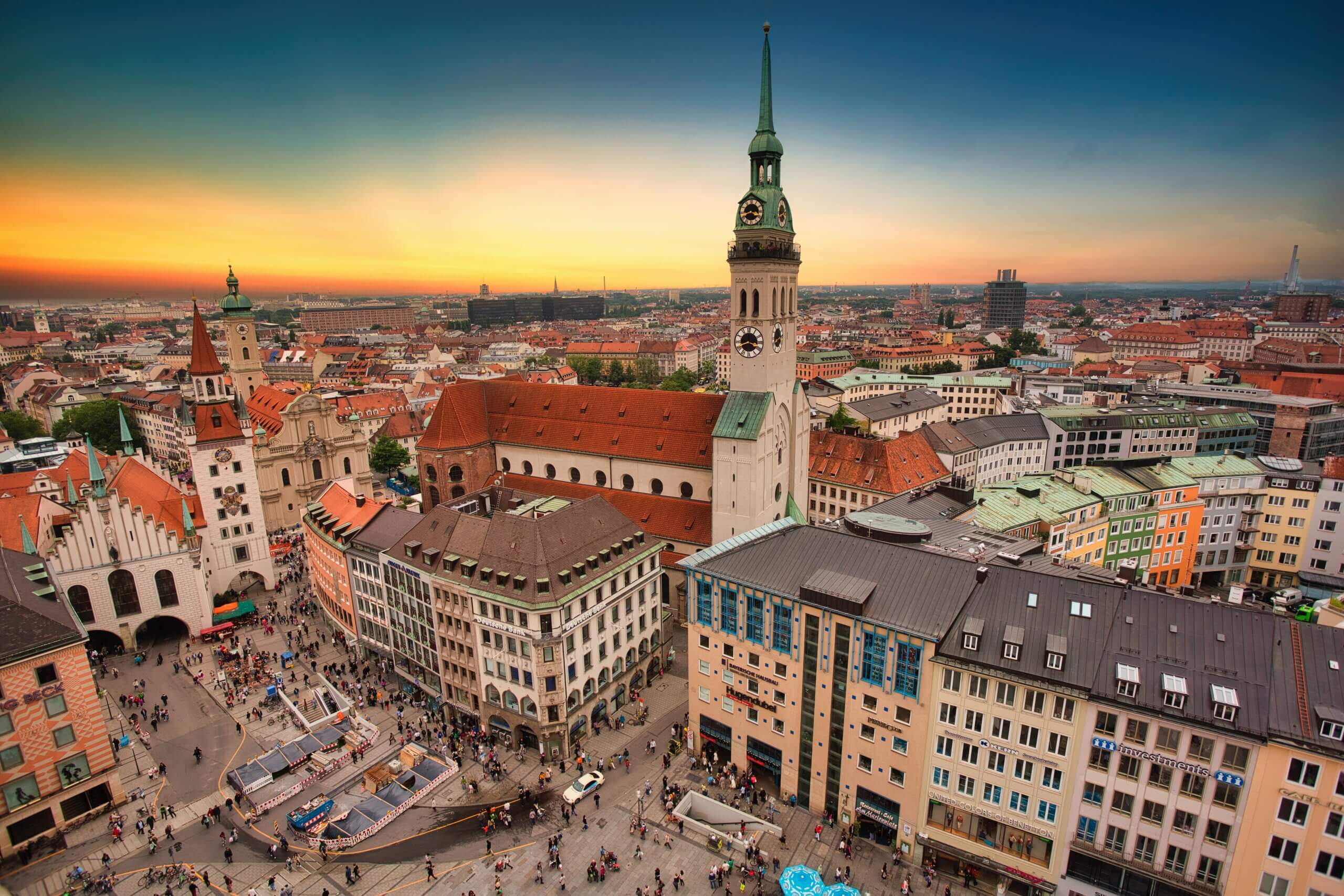Above: Munich, Germany.
The reader may have already heard of the events that have been prominent news in German Catholic media lately. Apparently the main takeaway in the Anglophone world was: “Pope Francis Rebukes the Synodal Way!” However, that news is more ambivalent than suggested at first sight.
German Catholics have been suffering under the so-called synodal way for a while. Officially the project was meant to deal with the sexual abuse scandal, which it did only ever so sparsely. Mostly, the fora dealt with the common topics of “reform debates.” We have yet to discover how introducing women’s ordination, abolishing mandatory celibacy, allowing the blessing of same-sex relationships and depriving the bishops of their authority for the benefit of a pseudo-democracy within the Church are to solve this issue. Note: The lay delegates in the synodal assembly were ironically not elected by the faithful. Corruption is widespread among clerical and lay employees of the episcopal ordinariates, who would be likely candidates for any new caucuses.
We, the initiative Maria 1.0 (this name refers to how Our Lady, who also represents Holy Mother Church, is not in need of improvement because she is already perfectly holy), have been watching and protesting this enterprise from its very beginning. This has been to no avail regarding the technical outcome. Still, we have been able to provide much-needed encouragement to our fellow orthodox Catholics. Additionally we have successfully seen to it that everyone involved knew the so-called reforms were not supported by all German Catholics, especially among Gen Y and Z.
Regrettably, the nightmare did not end with the last synodal assembly in March. The “synodals” (as we nickname the mostly left-leaning members of the synodal assembly) have come up with the idea of perpetuating the synodal way in the form of the so-called “synodal board.” This board is to be prepared by the “synodal committee.” The Holy Father has explicitly stated that he does not condone the synodal board. Still, in mid-November the synodal committee met for the first time.
Throughout the years of the synodal way, several notes out of Rome have reached Germany. At some point it was possible to deduce a pattern of reaction:
- Publication of the document.
- Celebration of the document by conservatives (“Game over! Finally!”) and outrage among self-proclaimed liberals (“How dare Rome…?!”).
- Certain left-wing Church officials as well as journalists find a way to interpret the document in their favor (“In reality, Pope Francis is encouraging us!”).
- No further reaction from Rome.
Let us briefly explore the latest documents. One was a private reply to a letter of four conservative women that used to be part of the synodal assembly. They resigned from it due to the climate in the assembly that only wished to hear Modernist opinions. The four then published the letter.
The other letter came from Cardinal Parolin, Secretary of State. It addresses the questions of women’s ordination and the Church’s moral teaching, but most importantly it rebukes the initiative for the “synodal committee” calling it a national special path in the face of the world Synod.
The public reactions to the two letters mostly followed the standard pattern, though some had by now been disillusioned. The most amusing reaction probably came from Michael Böhmke, professor for systematic theology, who reframed the documents as being secretly Feminist.
Much more interesting however is the publishing date of Cardinal Parolin’s letter.
The letter is dated October 23, during the first session of the world Synod. The synodal committee first met on November 10 and 11. Two weeks later, on November 24, the letter was leaked to a Catholic newspaper called “Die Tagespost” (“The Daily Mail”). Naturally, this was intriguing: When did the German bishops, especially Bishop Bätzing (head of the Bishops’ Conference) receive this letter? Why was the synodal committee initiated as planned? Did those responsible ever plan to inform the faithful of the Roman reprimands? Keep in mind that we the faithful are obliged to finance the synodal committee (via Church taxation) under the threat of quasi-excommunication.
On November 28 we, Maria 1.0, sent a letter to the secretary of the German Bishops’ Conference, Dr. Beate Gilles, on behalf of the many faithful pondering these same questions. At the writing of this article (December 2), we are still awaiting an answer.
As German Catholics, who love the Church and their country, the last years have not been easy. More than anything we long for effective measures being taken by Rome. We have seen Bishop Strickland fall and many of our bishops stand. In the meantime, 4 of 27 German dioceses are left vacant after their bishops resigned due to age or other reasons. The few remaining orthodox bishops are under constant attack. Still, the Church belongs to Christ alone, she has no other master. While we sometimes wonder why God is allowing all of this, we are also confident that in His time He will see to it that what has been broken is restored.
“About Zion I will not be silent, about Jerusalem I shall not rest until saving justice dawns for her like a bright light and her salvation like a blazing torch” (Isaiah 62: 1).
Photo by ian kelsall on Unsplash


